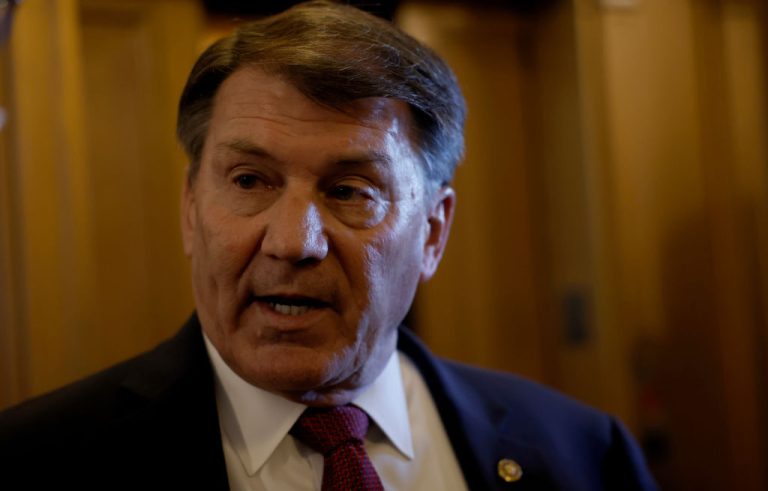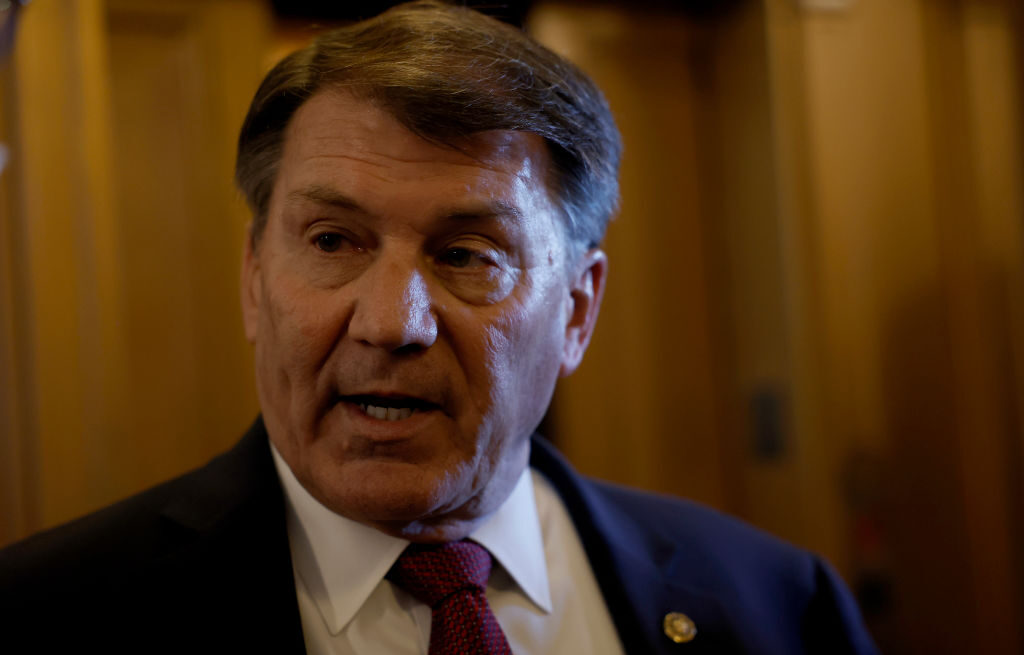SIOUX FALLS, S.D. — South Dakota Gov. Kristi Noem tried Tuesday to win over the Republican-controlled Legislature with details of her plan to enact a historic repeal of the state’s tax on groceries. But to deliver on the campaign promise, the Republican governor must convince lawmakers in the coming months that the state can also afford to tackle inflation and a long list of items pressing on the state’s budget.
Noem, a Republican, was critical of a proposal to repeal the state grocery tax during the final days of the legislative session in March, but this fall, she changed course and made it a centerpiece of her reelection campaign.
“Eliminating the sales tax on groceries is the biggest way that in my budget that we can help South Dakotans tackle the challenge of Joe Biden’s inflation and protect their hard-earned money,” she told the Legislature in her annual budget address. “Unfortunately, food costs have risen by far too much. Families are struggling to make ends meet as a result
Noem, who has set her political ambitions beyond South Dakota, repeatedly took aim at Biden’s economic policies in the speech and credited the state’s rosy financial outlook to her conservative policy-making.
However, the state’s economic growth has lagged behind much of the country this year. South Dakota’s gross domestic product growth — the broadest measure of economic output — ranked 33rd among states from April through June, according to the most recent report from the U.S. Bureau of Economic Analysis.
Some Republicans and Democrats say they first want give raises to keep pace with inflation to people who draw their income from state funds. They also need to find funding for the Medicaid expansion approved by voters this year, upgrades to the state’s prison system and shortages in elder care facilities.
“We’re going into a year where there’s a real interest in cutting taxes but there are also a lot of new demands because of high inflation,” said Republican Rep. Tony Venhuizen ahead of Noem’s speech.
The governor has estimated that repealing the state tax on groceries would cost about $100 million and argued that state revenue growth can cover it. Noem expects the state to have $310 million in ongoing revenue growth in the upcoming fiscal year, as well as $216 million in one-time funds available.
During her victory speech on Election Day, Noem was so confident that the state was ready to cut the grocery tax that she also hinted at other projects she would like to fund — incentivizing paid family leave and creating a way for childcare workers to get benefits. On Tuesday, she said she wanted to send $23 million to pay for paid family leave for both state employees and private sector workers, but made no mention of addressing what many in the state see as a crisis-level shortage in childcare.
Budget-setting during most of Noem’s first term was filled with state revenues swollen by consumer spending and federal pandemic relief. Noem has credited her hands-off approach to governmental COVID-19 protection measures for keeping the state’s economy humming.
A potential recession could take a toll on state budget revenues in the coming year and inflation has already left budget holes to fill, said Sen. Lee Schoenbeck, a Republican who presides over the Senate. He expressed skepticism at the idea of cutting taxes that provide ongoing revenue for the state.
Sen. Casey Crabtree, the Republican caucus leader, issued a statement praising Noem’s budget approach but stayed silent on the proposed repeal of the grocery tax.
“The GOP-led Senate is dedicated to making sure our residents are taxed fairly and that South Dakota remains fiscally sustainable in the long term,” he said.
“We are going to see a fight between those who want to do all these tax relief programs — but you’ve got to care for all the people in our state,” she said.












